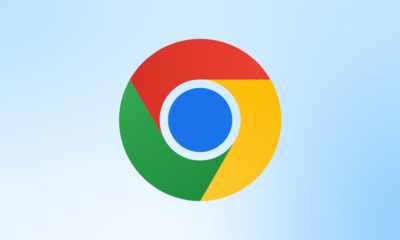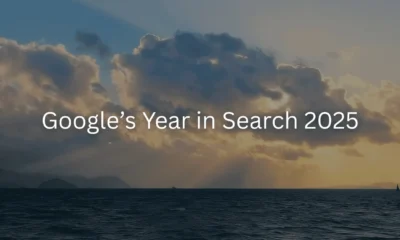SEARCHENGINES
Google September 2023 Helpful Content Update Current Impact
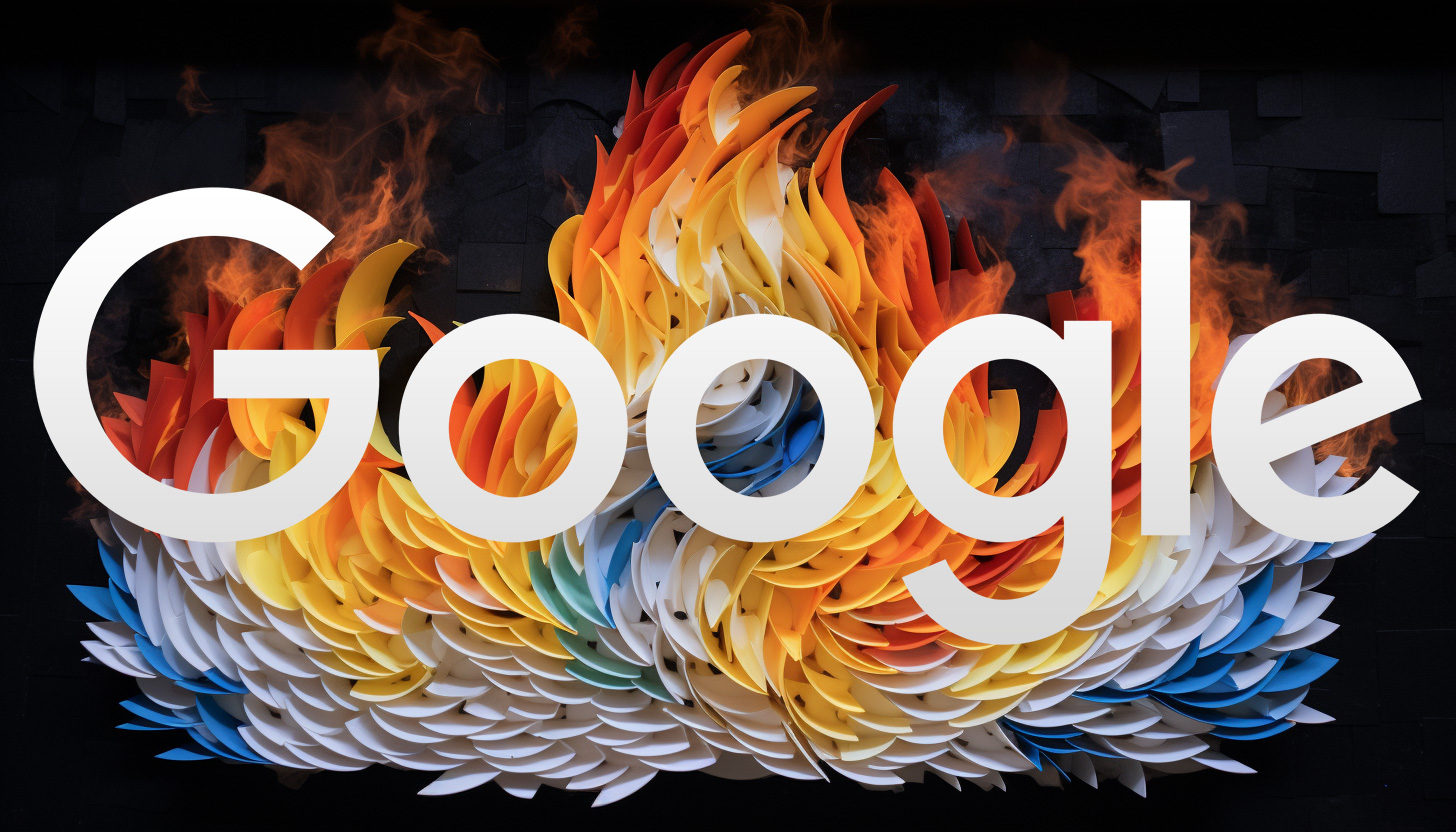
Google started to roll out the Google September 2023 Helpful Content Update last Thursday afternoon and I’ve been seeing mixed signals about how strong and widespread this update is. There are definitely site owners and SEOs claiming some of their sites were hit hard but the tracking tools are reporting relatively calm weather since the update started.
The chatter is pretty heated in the various forums however I am not seeing much talk on Twitter of this update. The weird thing is the chatter is not matching up with the tracking tools.
Since we are now over five days since it started rolling out, I wanted to cover what I am seeing.
Again, there is a lot chatter and SEOs are claiming traffic drops (or gains) from Google Search after this began rolling out. But again, most of those tracking tools have been pretty calm.
Many are reporting drops in traffic and visibility from 40% to upwards of 80% after being hit by this helpful content update.
SEO Chatter
Let’s look at what the chatter is showing in the WebmasterWorld forums and the comments here. The chatter did slowly start up a day after the update was announced.
Huge drop 10am sharp…traffic was very high this morning then right off the cliff. Hopefully temporary…
I love Google. I am now -30%. Destroy my site more G! Keep those downward spirals coming! They have a monopoly going but want to destroy their SERPS instead. Really hope this is temporary.
Mine was UK 19.00, exactly the same and has continued into today. It is now 12.30 UK time and in the last 17.5 hours I have had only ONE multiple page view visitor, in fact so far today I have had only 15% of my average traffic, yes 15%.
What on earth are they doing, quite simply Internet traffic does not switch on and off like this, it is blatantly being manipulated.
My traffic jumped up considerably from August 26th onward, and has been especially high in the last week. Interestingly, this past week there weren’t many new customers inquiring at all. Now with this 2nd update we are back to big drops and peaks, and as usual it’s USA traffic that is dropping, every other country is still high. It’s too early to tell whether this will hold…I’m thinking that this is the dialing back of the previous update.
Is anyone noticing a huge fluctuation today? Both up and down. My website moved up to the first 5 positions on the first page for the most used term in my niche. It stayed there for 2 hours.
Then returned to the 3rd page. But it’s fluctuating a lot today. My website has never come so close to the big competing companies in my niche.
I had a small drop when the useful content update started in december/22. I notice that several pages are recovering positions since yesterday.
Nothing more just. It seems like a kind of “fix” for G, after its disastrous update.
Yes, large drops with plateaus throughout the day starting at 10am yesterday and continuing through today. All of it is drops in USA traffic. It seems that around 9am this morning it jumped up a bit. but both Fridays and Saturdays are generally low traffic days so hard to tell. Interestingly, all the conversions stopped already while the traffic was very high. I do think GOOG is probably dialing back the previous update…they made a terrible mistake and allowed people to get decent traffic for far too long. That simply cannot be allowed to continue.
USA traffic -62% at 1pm on Sunday…Canada is -40% and Australia is -30%. USA was also down most of the day yesterday, but ended up +4% after a late night spike. Every other location is still strong. So this latest update is simply a rehash of the previous trends where USA/Canada and other English language searches drop off a cliff on a regular basis. This has nothing to do with “Helpful Content”, it’s really a “We’re Helping Ourselves to Your Income” update.
Saturday struggled to a 63% with today being even lower coming up to 17 hours and 32% … This is looking extremely pear-shaped !
I have noticed big movements all day since sep/15. Overall, I notice an increase in my traffic.
Big moves downward in USA / Canada traffic since the minute this was announced basically. It went from being +36% in the previous month to -50%-60% all day long with a mysterious pop of traffic in the eve making up the day’s loss.
Very, very slow weekend, like other said before. But today traffic was a little better. Some conversions and it seems that certain items that we put much effort in coming back. But that means nothing. Could be upside down tomorrow or in 10 minutes.
Sunday’s total traffic 45.5% with today after 16 hours at 32.5%, this is sub-Xmas / New Year / Easter Day levels for me. My global SERPs seem to be unaffected apart from USA localisation of half-a-dozen specific keywords.
Traffic for our informational travel site has been up slightly (most days, in the single digits) in week-over-week comparisons.Of the past seven days, all days but one were showing an improvement. Since these improvements have come at a time when we’re normally in a downhill slide that lasts until at least mid-December, the boosts are better than the raw percentages might suggest.
A page that was deleted over a month ago, has now started ranking for many keywords during this update.
This means that Google extracts data on pages for ranking weeks before, launching the update. So, any quality changes you make will literally take months to take effect.
There isn’t any synchronization between their crawling, indexing and ranking systems, else their algos wouldn’t rank and display pages that haven’t existed for weeks.
In the first few days, it seemed like it was something intense. But it has stabilized for now. Slight movements so far, everything is warm…
UK traffic is down ~40% for today. First day seeing changes since the update was announced, not sure if it’s gonna stay or not.
The HCU is killing my 10-month old informational site. Yesterday -20% organic traffic compared to last week, today will end up being about -45%. I am hoping for a full recovery as with the August update, but this looks bad. Really bad. I tried my best with this site, I have proper topical authority, topical clusters, interlinking is excellent, and the blog posts are extremely helpful to the best of my abilities. This is ludicrous if it remains.
Well, this Helpful Content update reversed all the gains from the August Core Update.
For once, seeing an uplift in traffic since these last updates. It might go back down in a few days who knows.
Since September 19th my site has lost visibility on Google News and apparently on Google Discover. If before with keywords it was on 1-2 pages on Google News now it is on 4-6 pages.
My newest site is hit terribly. Today will end up at -40% at least. The site is extremely helpful and I’ve implemented some of the best SEO practices, so I’m completely lost… Perhaps it’s the SGE rolling out?
I’m finding very little info about this update, but there’s a huge impact in my niche/location (Tech/EU), since yesterday. SERP’s for a lot of terms that I track have completely been scrambled. I’m down about 50% of my search traffic personally. All that’s ranking right now are retailers and sites with tons of authority, often with results that aren’t as helpful in answering the search query. Independent/small publications all seem to be down, however helpful the content is (better answers for the query, actual product reviews, etc, doesn’t seem to help ranking for these sites). Really hope to see some of this reversed soon.
Same here. Lost about 40 to 50% of organic traffic today. Is it the SGE rolling out for everyone? Now AI ranks up perhaps? And organic traffic suffers? Just guessing, but no idea.
Same here. My rank tracker today has shown a disastrous loss of formerly secure keyword positions, most of which were ranking in the top 5 and have now fallen to page 2 or 3. But this new ordering only displays some of the time depending on page refresh.
I’m looking at the new results and I’m now being outranked by pages that are not even relevant to the query. Many sites that are ranking now are just e-commerce listings.
60% loss in traffic in the past 24 hours. There is insane volatility in my keywords, jumping from page 1 to 7 to 3, also the SERP results change every time I refresh.
So far approx -15% for my 16 year old, niche authority, highly relevant and helpful information site. It tanks further every day, especially US traffic.
My 7-year-old site is 15-20% down since Monday. I’m tired of this grind—one week up, next week down. Traffic does not increase at all. On top of it, lower ad revenue.
Seeing massive shake ups on my end and lost heaps of traffic, im not even counting at this point cause it seems to be on the hourly that more keywords are losing their positions to massive news sites, reddit and quora.
Lost 20% traffic (around 1k sessions). Seems like many featured snippets are gone.
Like most of you. Even I lost 45% traffic from my website since September 18-19. Thank you Google.
Yup, in the same boat. About 45% lost organic traffic on my main site.
Never happened before, it’s getting worst, down 50% all of sudden. This is the most unhelpful update even seen from Google, like Google set the criteria, only very high authoritive website must rank high on SERP, no matter the relevancy of content and quality.
That is just some, a sampling, of the chatter.
Google Tracking Tools
Here is what the tools are showing, as you can see, most are pretty calm since the 14th and 15th, when this update started to roll out. In fact, Semrush looks almost dead:
Sistrix sent me some charts saying they are just noticing the first movements from this helpful content update:
Glenn Gabe is also tracking this super closely early on was also not seeing big shifts but things may have changed in the past 24 hours:
On the fourth day of the rollout, it’s STILL VERY QUIET on the HCU front. I’ve been going through a ton of data each morning since the rollout began and I’m not seeing anything yet. Either it hasn’t kicked in yet, or we have another HCU dud. Time will tell. 🙂 pic.twitter.com/YQcnnvmRCv
— Glenn Gabe (@glenngabe) September 18, 2023
This morning he noticed big changes:
Even though I’m seeing a ton of movement with the HCU this morning, it seems ‘parasite SEO’ sites are stable overall. Maybe that part of the update still needs to roll out… Here are some examples showing no movement yet from the Sep HCU. Again, stay tuned. pic.twitter.com/NPDx6wVmSB
— Glenn Gabe (@glenngabe) September 20, 2023
This feels like a weird update.
What are you all seeing?
Forum discussion at WebmasterWorld.

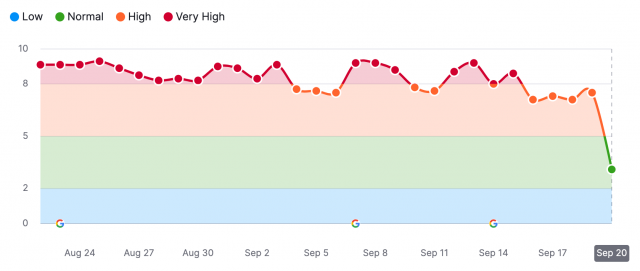
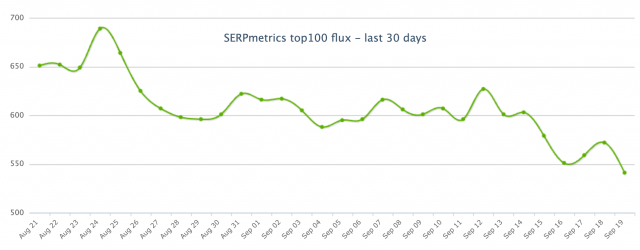
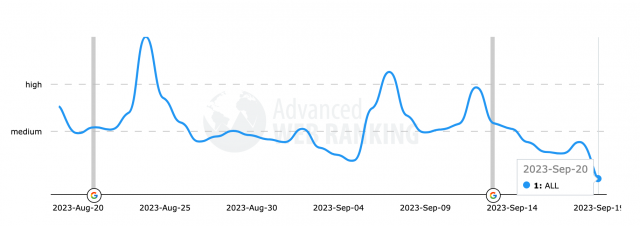
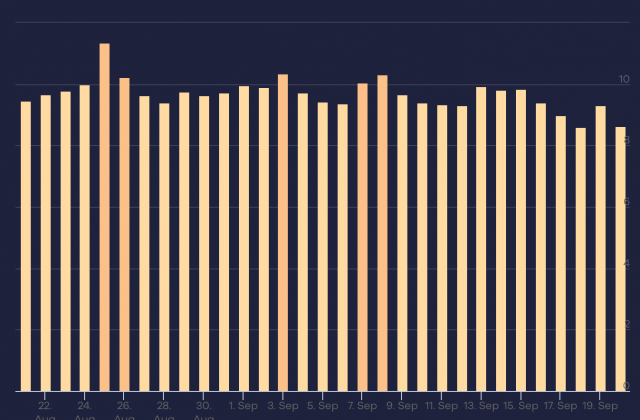
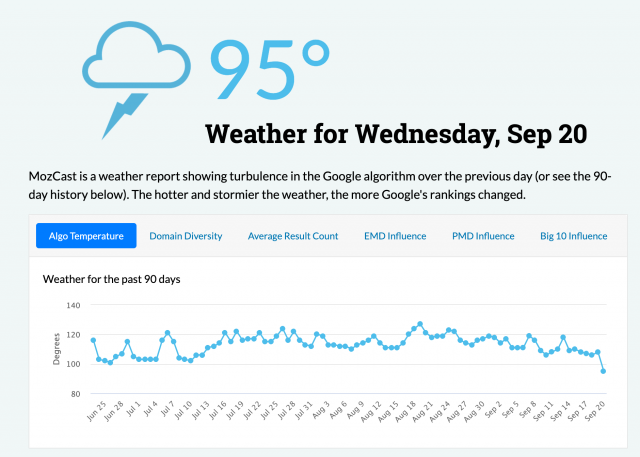
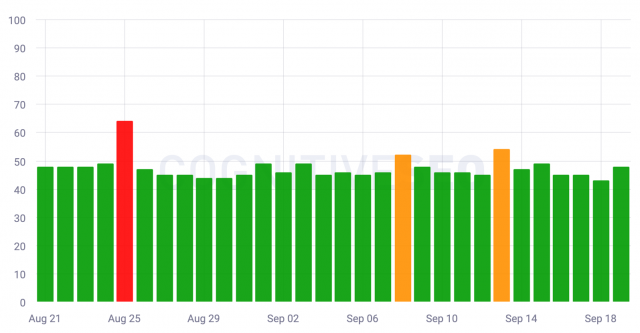





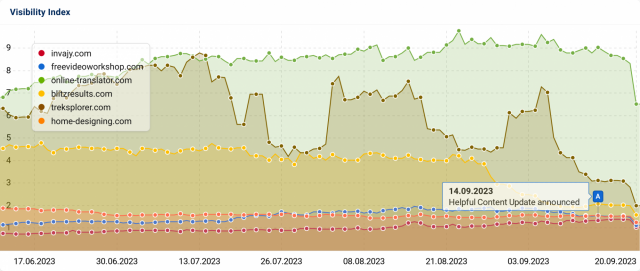
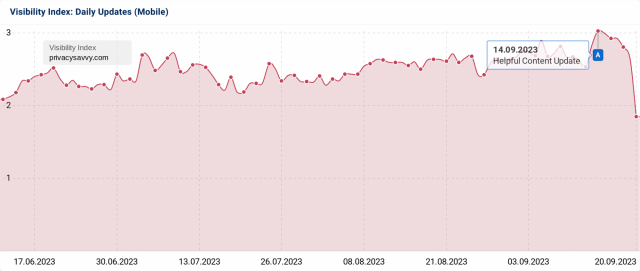
![How AEO Will Impact Your Business's Google Visibility in 2026 Why Your Small Business’s Google Visibility in 2026 Depends on AEO [Webinar]](https://articles.entireweb.com/wp-content/uploads/2026/01/How-AEO-Will-Impact-Your-Businesss-Google-Visibility-in-2026-400x240.png)
![How AEO Will Impact Your Business's Google Visibility in 2026 Why Your Small Business’s Google Visibility in 2026 Depends on AEO [Webinar]](https://articles.entireweb.com/wp-content/uploads/2026/01/How-AEO-Will-Impact-Your-Businesss-Google-Visibility-in-2026-80x80.png)




